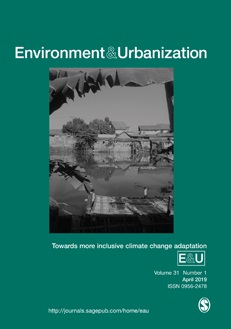Co-producing Windhoek: the contribution of the Shack Dwellers Federation of Namibia

Over the last three decades, Windhoek, Namibia has grown substantially. In line with the general urban growth, Windhoek’s informal settlements have expanded, making it ever more pressing to secure basic services and suitable housing for residents of these settlements. This paper, drawing from the author’s PhD completed at the University of Manchester in 2013, documents how one social movement, the Shack Dwellers Federation of Namibia (SDFN), has challenged and collaborated with the City of Windhoek to improve living conditions. The analysis draws on varied data sources – including extensive interviews with government and federation representatives, the SDFN’s own data, and maps showing the spatial transformation of the city – to trace the recent history of co-production in Windhoek. The continuing marginalization of the city’s informal settlement dwellers points to a need for reimagining Windhoek’s residential development and integrating this into planning, as well as working with social movements like the SDFN to ensure that reforms are grounded in local realities and reflect the aspirations of those on the city’s northwest fringe.


Comments